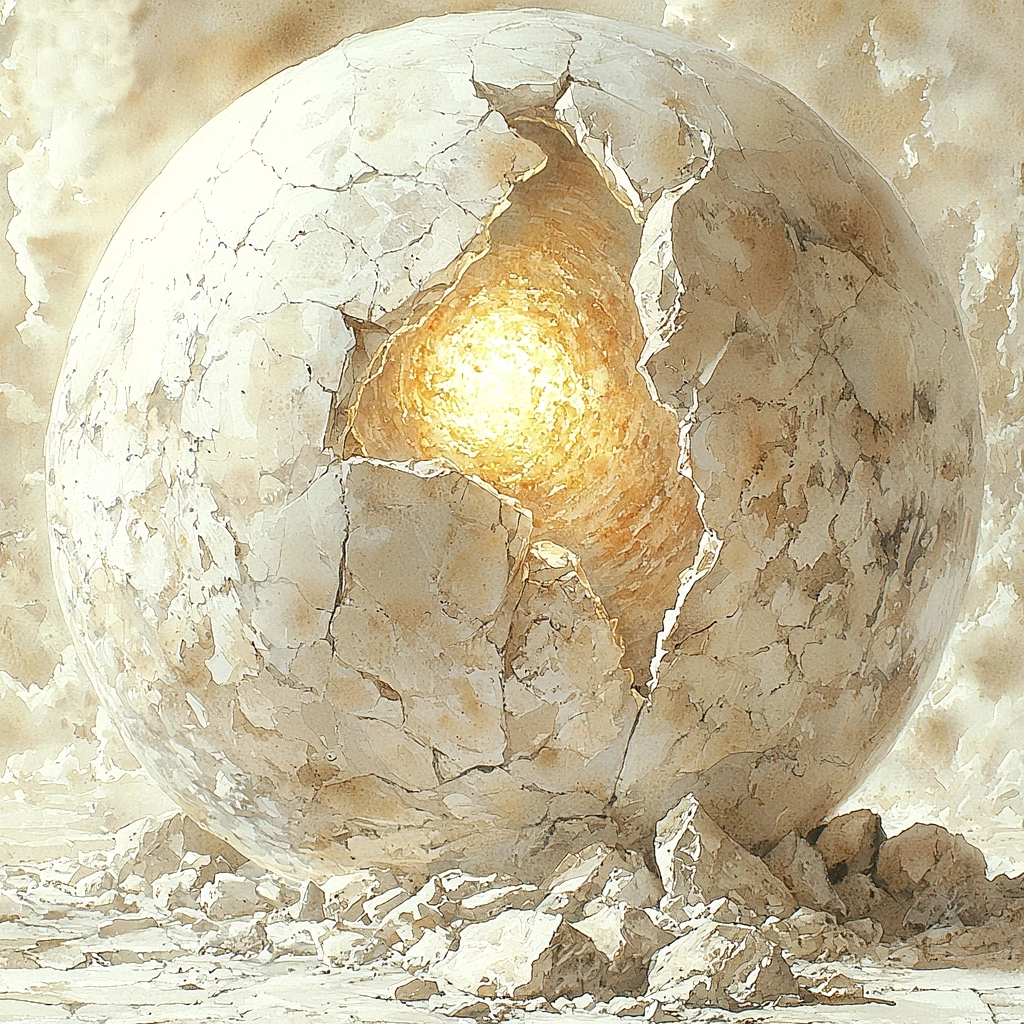⚙️ When Your Worldview Rusts
What once felt self-evident – rest hours, greetings, small courtesies – dissolves in the routines of modern life, as if it had never held. The old order does not crumble with noise but with indifference – a patina of options scarcely noticed anymore.
Stoic Thinkspace
◦ Hardened worldviews quietly guide perception beneath awareness.
◦ Doubt reframed as signal rather than weakness.
◦ Friction reveals limits of familiar interpretations.
◦ Relevant when familiar certainties begin eroding.
🚦 Waiting for Green, No One Stops
A traffic light. No car. Only pedestrians – and no one stops. No protest, no defiance – just a collective shrug. What was once a rule is now mere scenery: as if someone had changed the script but forgotten to clear the props. People just keep walking, as if nothing had ever been there.
The break doesn’t come through rebellion but through evaporation. No fight, no victory – only a quiet “So what?”. The worldview doesn’t rust in drama, but in silence.
In this scene our theme begins: the dissolution of cultural self-evidences. What once framed life turns into furniture – still visible, but long without function.
🏛️ What Endures Is What Holds
The Stoics would offer no cultural lament here—just a sober principle: Héxis Ēthikḗ (your trained character as compass). To early Stoics, change was no flaw or loss—it was the natural state of social forms. What shifts simply reveals what was never fixed.
Epictetus didn’t point to customs but to rules of the game—and those you may need to rewrite. Not every crumbling habit is a tragedy; some merely reveal they’d lost their grip long ago.
🧭 Orientation Without Nostalgia
And still the question remains: What do you orient yourself by when everything becomes optional? One concept surprisingly holds steady here: Logos (universal principle of order in all change). It’s not about saving old norms—but preserving that inner coherence that carries you even through formlessness. Not rules, but direction. Even when others lose the path, you don’t have to stumble with them.
🔧 Philosophy with a Loose Screw
Maybe the loss of norms isn’t failure—but a stress test. The traffic light as metaphor: a device with no effect—and you are the operating system. The moment you hesitate is more valuable than any rulebook. Even if you cross anyway. Only those who hesitate notice that something’s missing.
Irony is when you function—though no one ever taught you how.
Sartre might have celebrated it as existential freedom—no god, no script, just choice. The Stoics are more sober: when no one else plays along—can you still act with integrity, without needing to be right?
“You don’t impress with what you know – but with what you let go.”
– Stay-Stoic
☕ The Quiet Power of Routines
Some rituals outlast everything – not because they matter, but because they slip by unnoticed. The first glance at the phone. The cup of coffee before the day begins to count. The nod in a video call that no one needs. No rule, no compulsion – just sedimented behavior. Habit disguises itself as choice.
This is where the Stoic appeal lies: Stoicism doesn’t demand that you question everything – only what you still want to do, even when others have long stopped. It’s not about brooding, but about pausing quietly in the midst of action. A glance at your own hands is enough – and you know if you’re still with yourself, even when everything around you shifts.
💓 When the Body Knows Before You Do
You speak, but your shoulders say something else. You laugh, but your jaw clenches. The body is often first to stop playing along with the new worldview. Even before doubt arises—your neck reacts. Before you admit you want too much—you hold your breath.
What feels like psychosomatic fog is often a quiet refusal. Not against the world—but against the part of you that adapted automatically, though inwardly you’d long shifted. The Stoics speak of self-awareness—not as a mirror, but as a seismograph. What you feel has direction—and maybe it points to the place where you don’t have to fall in line, just because everyone else has lost theirs.
💡 When Thought Takes the Long Way
Maybe what’s rusting isn’t broken—but a quiet signal that you’ve been relying too long on something never held up by many. A form, a behavior, a belief—rarely shared, yet still upheld. The Stoic doesn’t ask: Who’s still with me? But: What is worth doing—even if I stand alone?
“A person is measured by what they give up—without breaking.”
– Seneca
🌇 And Then There’s Only Air
Sometimes it’s a Tuesday. A glance down the stairwell. A quiet echo in the hallway. Something’s missing—but nothing is lost. Maybe it was never the worldview that carried you—but the walking itself. No new model, no theory—just the silent pacing through the uncertain. Not to get ahead—but to avoid standing still.
The Stoics don’t hand you a plan—they show you where you don’t need to follow.
About the author: Mario Szepaniak – Author profile
Please Note
The content of this post is for informational and inspirational purposes only. It does not constitute personal, psychological, or medical advice. For individual concerns, please consult an expert. Learn more: Disclaimer.
This thinkspace exists through support.




